Favela communities have been severely affected by the coronavirus crisis intensifying existing inequalities
*by Cathy McIlwaine
Not a day goes by without a news story about the catastrophe of the coronavirus pandemic in Brazil as cases and deaths increase alarmingly and the severity of the political mishandling of the situation by President Jair Bolsonaro and his disregard for the nation’s safety deepens. In Rio de Janeiro, the historical and extreme marginalisation of around 1.5 million people who live in the city’s favelas or slum communities worsens. The challenges of the pandemic in these communities that have been systematically neglected to breaking point by the state are monumental.
Nowhere is this more obvious than in the Complexo da Maré, a favela complex of 16 communities which is home to around 140,000 people making it the largest and most populous set of slums in the municipality of Rio de Janeiro.


COVID-19 has hit Maré very badly. The proportion of fatalities to positive tests are extremely high at 30 percent (as of 4th May 2020). With many residing in overcrowded housing, with poor access to water and sanitation services and incomes being decimated, it has been extremely difficult to halt the spread. The health system comprising seven health centres and one medium-sized hospital is overwhelmed. Hunger and starvation are affecting many residents, especially the homeless and already vulnerable such as those with drug problems.
Women in favelas have been severely affected by COVID-19 yet they have emerged as the backbone to the response
While the resourcefulness and resilience of many favela residents has already been reported, it is women who have been major players in confronting the effects of the pandemic, despite suffering its worst effects. Women everywhere are disproportionately affected by multiple caring demands, insecure livelihoods being undermined and shocking increases in domestic violence linked with the COVID-19 crisis. While these effects are global, women and girls living in marginalised communities are more severely affected.
In Maré, women comprise 51 percent of the population with 45 percent heading their own households, all of whom have to reconcile family, domestic, livelihood and professional responsibilities. Many women lived precarious lives prior to the pandemic. Recent research pre-COVID with 800 women in Maré revealed that many had limited education and restricted access to formal employment with most either unemployed or running small businesses. Many faced challenges in their lives with 36 percent having experienced gender-based violence and 76 percent stating that it was a common occurrence. Women also have to deal with the fact that Maré is dominated by four of Rio de Janeiro’s Armed Criminal Groups (ACGs) as well as repeated violent incursions into the community by the police in the name of ‘security’ which have continued during the pandemic.
Women underpin the ‘Maré Says NO to Coronavirus’ campaign
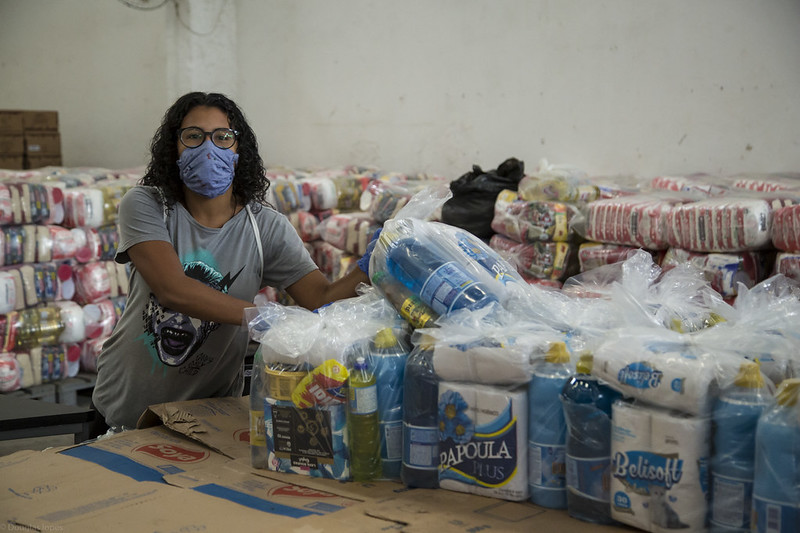
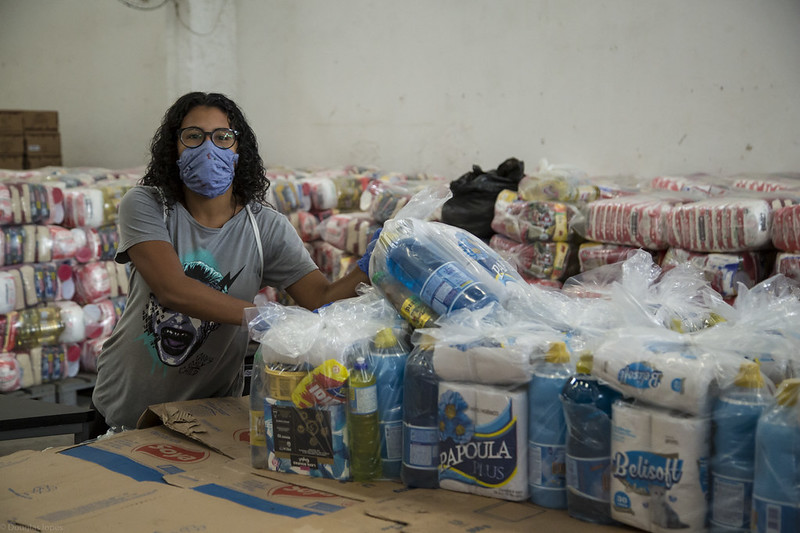
Yet the work by an NGO based in Maré shows that women are the backbone to the responses to the pandemic. Casa das Mulheres, a subsidiary organisation of Redes da Maré, opened in 2016 to promote the role of women through political training, psycho-socio-legal assistance and adult literacy, has been at the centre of a locally-run campaign to save lives from the virus and from hunger and to prevent further deaths.
The Director and founder of Redes da Maré, Eliana Sousa Silva, who was brought up in the community and, after completing her PhD, became the first ever woman President of the Maré Residents’ Association at the age of 22 before founding Redes in 2006, conceived the campaign, ‘Maré Says NO to Coronavirus’. This is based on the collection of Personal Protective Equipment (PPE) for distribution to professionals working in health facilities in the territory as well as a daily online health advice service via email and a WhatsApp channel as well as a prevention campaign.
It is women who run and operate the centrepieces of the campaign:
– the distribution of food baskets and personal hygiene and cleaning items to the poorest families and most vulnerable.
– a catering programme providing 500 meals a day for the sick who are unable to leave their homes and homeless people substance abuse problems. This employs 30 women (out of a total of 42).
– a sewing programme making masks (with the aim of providing two per resident by the end of June). This employs 56 women.
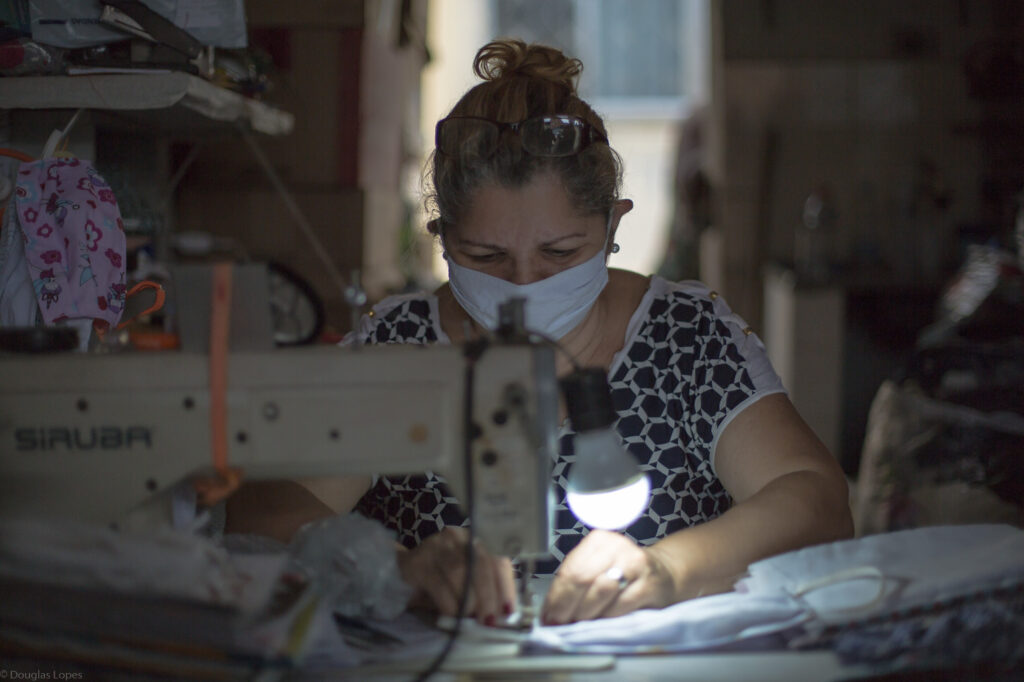
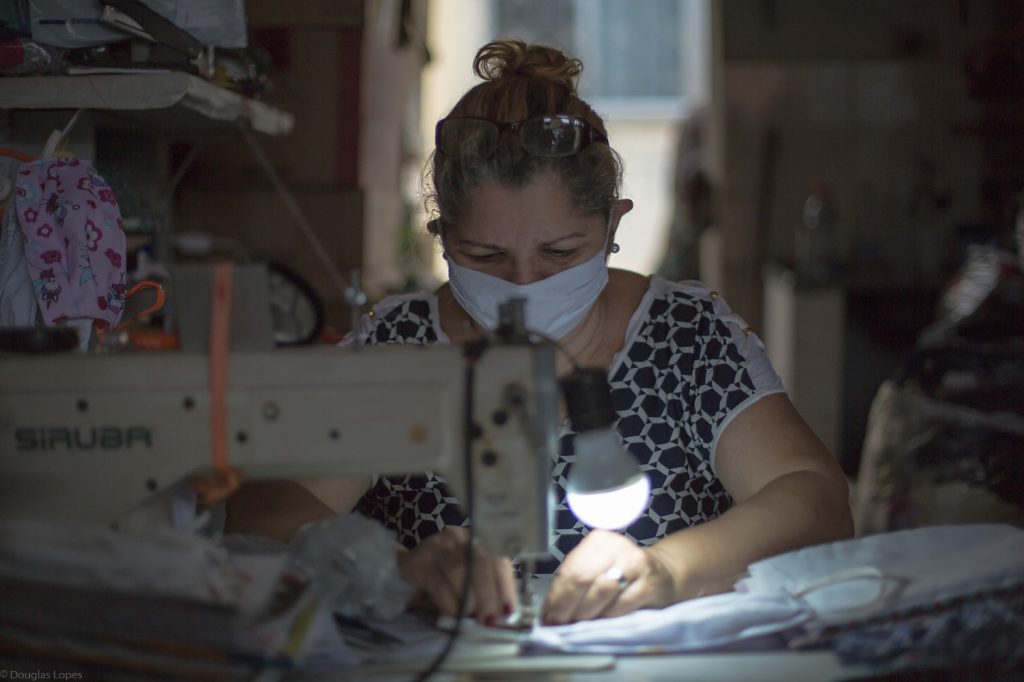
Altogether, 111 people are employed in the campaign, of which 98 are women, with a total of 300 people staff of volunteers. Overall, 20,000 have directly benefitted in the first four weeks of the campaign: 7,272 households received food parcels and cleaning /hygiene supplies, 4,600 meals were supplied to homeless people, and supplies have reached all 16 favelas have been reached. The numbers indirectly benefitting are much higher. This means that women have been at the heart of efforts to prevent starvation and the spread of the virus in the community. It is hard to imagine the campaign without the work and energy of the women. According to Eliana Sousa Silva, ‘the residents have been neglected by the state, the women are taking on the jobs of keeping people alive and safe’.
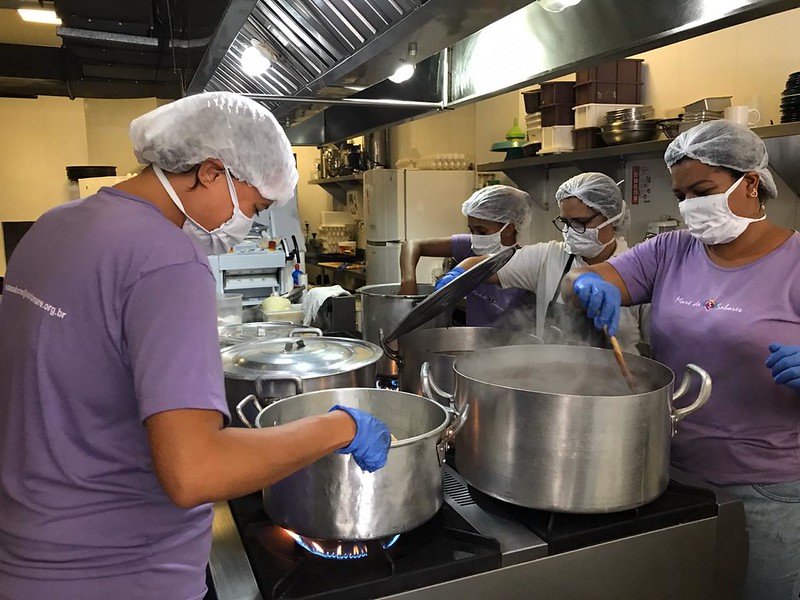
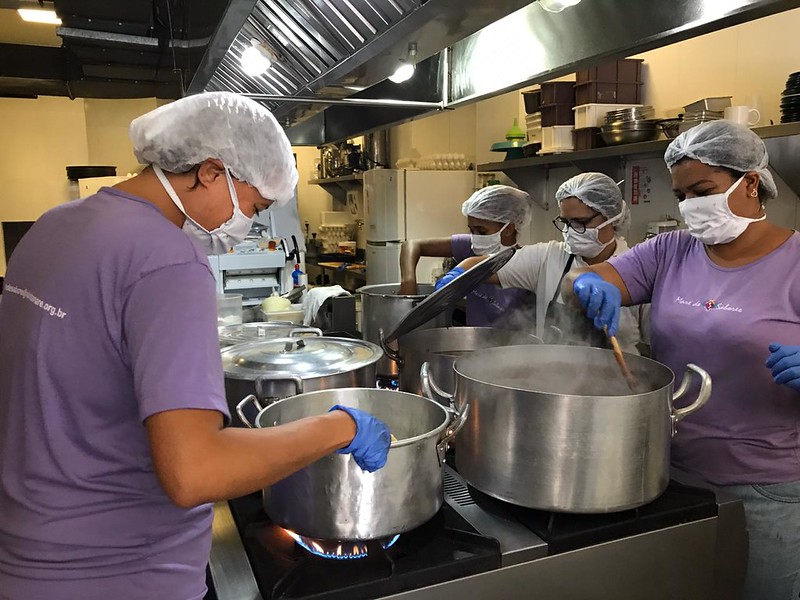
Yet these women are not only battling starvation and the virus, but also dealing with continued armed conflict, with three police incursions in Maré since the start of the pandemic, as well as an increase in domestic violence according to the Casa das Mulheres. Julia Leal from the Casa das Mulheres reported that although they are not operating normally, they are still providing a remote service for women with a special hotline to support them: “It has increased; in the past women came first for another service such as a divorce or pension and then begin to discuss domestic violence. During the pandemic it changed. Now we have women coming directly for help with violence”. While it is very difficult to measure, wider estimates in Brazil have reported a 50 percent in domestic violence, with 62 restraining orders against abusers in Rio state in April alone, with 5 femicides recorded (compared to 1 in March).
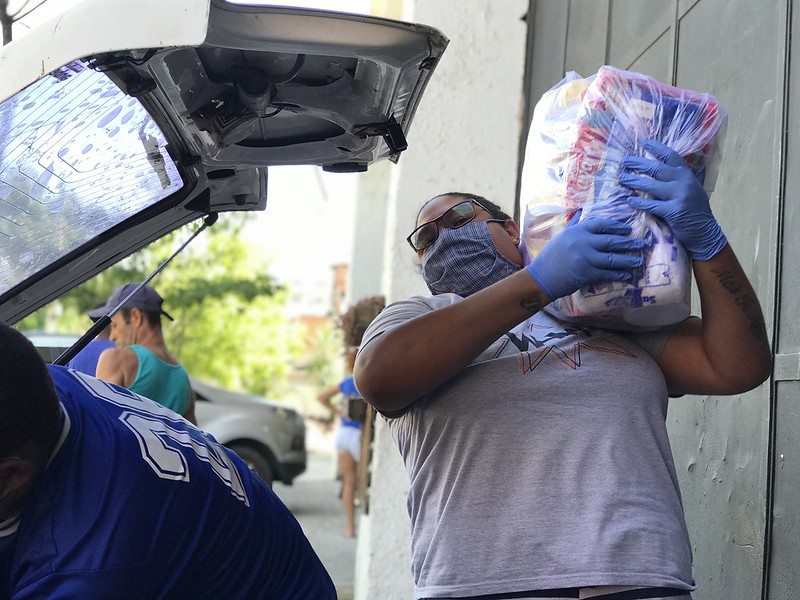
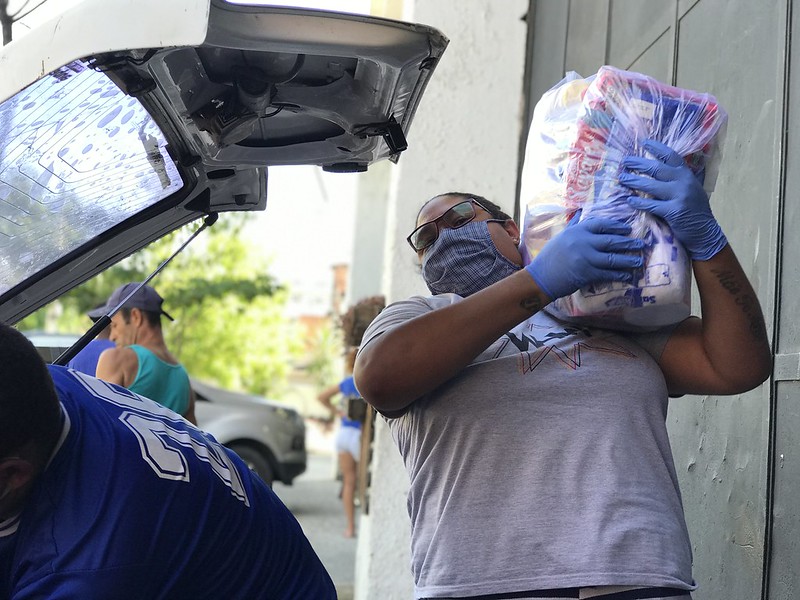
In the face of unprecedented adversity, it is remarkable then that women in Maré have responded with such strength, power and resilience. Of course, it should not be down to women alone to cope with the crisis. They need support from the state and the existing structural inequalities must be addressed. But while the state either ignores Maré and its residents or sends in police incursions, it has been women who have held the community together.
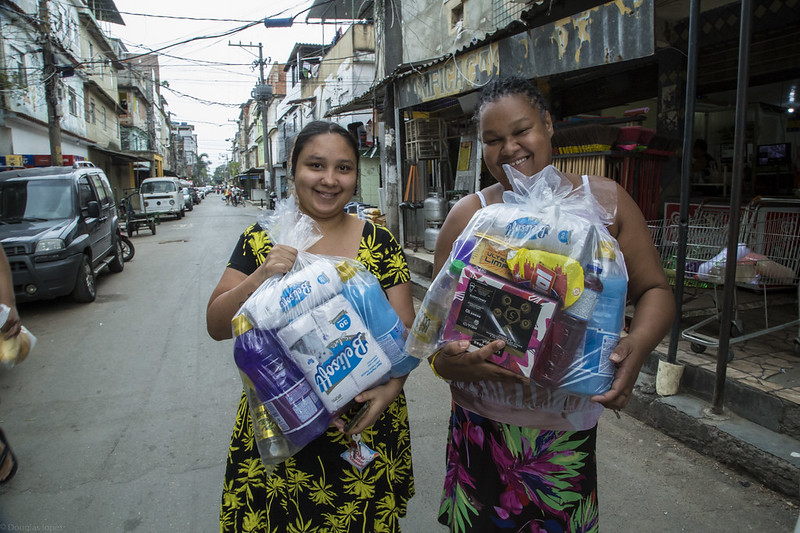
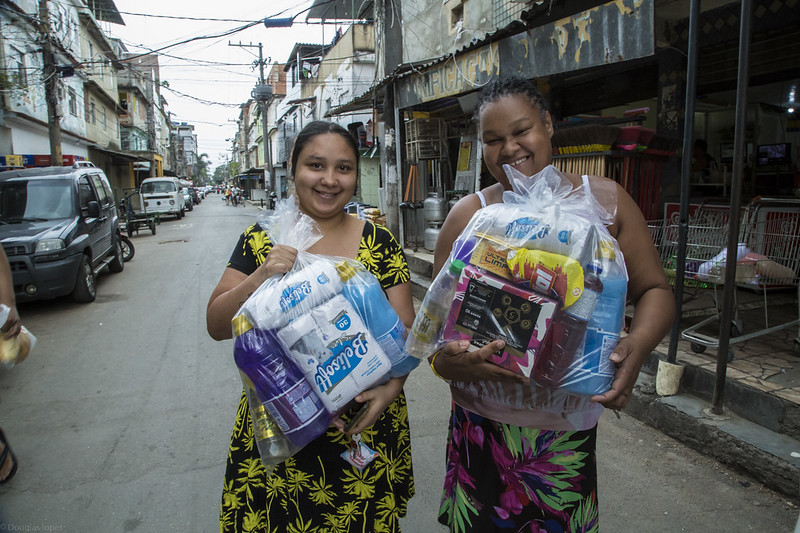
To donate to the Maré Says NO to Coronavirus’ campaign, please visit the JustGiving page
*Cathy McIlwaine, Professor of Development Geography, King’s College London. Redes da Maré are a partner in a current research project funded by the British Academy’s Heritage, Dignity and Violence programme as part of the Global Challenges Research Fund (GCRF) led by Cathy McIlwaine in collaboration with Queen Mary University of London (Professor Paul Heritage), the Federal University of Rio de Janeiro (Prof. Miriam Krenzinger) and Redes da Mare (Eliana Sousa Silva).
